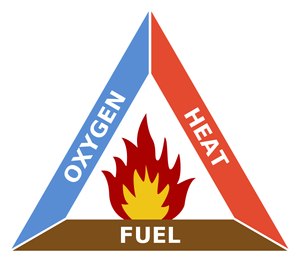
Grants are available for fire prevention education, wildfire management, first responder staffing and more
October is Fire Prevention Month!
In 1925, President Calvin Coolidge identified the second week of October as the national observance of Fire Prevention Week, in honor of the anniversary of the Great Chicago Fire. Fire prevention and safety has been taught to students and communities ever since, making it the longest running public health observance in our country.
Seconds make a difference when safely escaping a fire before it becomes a tragedy, which makes it important for every member of the community to take time during Fire Prevention Week and Month to make sure they understand how to stay safe in case of a fire.
Celebrate fire safety this year with the theme “Learn the Sounds of Safety.” According to First Alert , three out of every five home fire deaths resulted from fires in homes with no working smoke alarms. Your home should have smoke alarms in every sleeping room, outside each separate sleeping area, and on every level of the home. Larger homes may require additional smoke alarms to provide a minimum level of protection. It is necessary to interconnect all smoke alarms throughout the home for the best protection, so that when one sounds, they all sound. When the smoke alarm sounds, get out, stay out, and call 911.
Preventing a fire starts with understanding how a fire works. The fire triangle is a simple way of understanding the elements of fire. The sides of the triangle represent the interdependent ingredients needed for fire: heat, fuel and oxygen. If one of these components are missing, a fire cannot ignite or be sustained.
Here are two grants that help fire departments provide fire prevention and education:
Wildfires are unplanned fires that burn in forests and other wildlands, such as shrub or grass communities. There are currently 2.8 million acres on fire, and unfortunately, wildfires have become part of daily life in the western United States. As the climate continues to change and drought becomes more prolonged, wildfire risks will continue to increase. In 2019, 87% of all wildfires were started by humans; remember, only you can prevent forest fires!
Here are three funding opportunities to help with wildfire management:
First responders and front line workers have worked harder than ever over the last year and a half, and we need even more help to keep our communities safe. The Staffing for Adequate Fire and Emergency Response Grants (SAFER) was created by FEMA to provide funding directly to fire departments and volunteer firefighter interest organizations to help them increase or maintain the number of trained, "front line" firefighters available in their communities. The goal of SAFER is to enhance the local fire departments' abilities to comply with staffing, response, and operational standards.
Educate yourself and make sure you have the resources you need to keep your family, your community, and your city safe. Learn how to prepare your home from a wildfire with Smokey the Bear , or download your family’s home safety action plan today.
Copyright © 2026 EducationGrantsHelp.com. All rights reserved.
